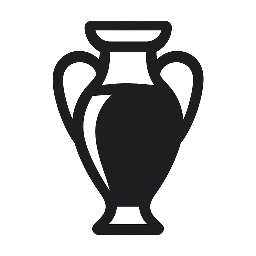Vaša košarica je trenutno prazna!
1687 – Newton’s Principia Mathematica Is Published

On July 5, 1687, Isaac Newton’s groundbreaking work, Philosophiæ Naturalis Principia Mathematica, was formally published after being funded and edited by Edmond Halley .This masterpiece introduced Newton’s three laws of motion and the theory of universal gravitation, revolutionizing natural philosophy . It provided the mathematical backbone for classical mechanics and set new standards for scientific rigor . Newton’s work reshaped how humanity understood the universe, influencing generations of scientists and shaping modern physics. The publication of the Principia marked the beginning of the Scientific Revolution and remains one of the most cited scientific books ever produced. The work demonstrated how natural phenomena could be explained with mathematics. July 5 is therefore celebrated as a milestone in scientific history. Today, Newton’s ideas still underpin modern engineering, space travel, and physics.
1775 – Continental Congress Adopts the Olive Branch Petition

On July 5, 1775, the Continental Congress adopted the Olive Branch Petition, a final attempt to peacefully negotiate a resolution with King George III before full-scale war erupted . Written by John Dickinson, the document expressed loyalty to the Crown while demanding redress of colonial grievances. The petition reflected the colonies’ desire to avoid independence at that early stage, seeking reconciliation and compromise. However, King George III refused to even receive the petition, viewing it as a sign of rebellion. This rejection hardened American resolve, setting the stage for the Declaration of Independence the following year. The Olive Branch Petition is now remembered as a significant moment of diplomatic resistance. It exemplifies early American political strategy and restraint. It highlights the evolution of colonial sentiment—from loyalty to liberty.
1811 – Venezuela Declares Independence

On July 5, 1811, seven Venezuelan provinces signed the Act of Declaration of Independence, formally breaking from Spanish colonial rule . This pivotal day marked Venezuela as the first Spanish American colony to assert independence in writing. Revolutionary leaders like Francisco de Miranda and Simón Bolívar spearheaded the movement. The declaration launched the long and arduous Venezuelan War of Independence. July 5 remains celebrated as Venezuela’s Independence Day, a national holiday with parades and civic ceremonies . The event advanced the wave of emancipation across Latin America. It laid foundations for republican governance and long-term sovereignty. Venezuela’s decision inspired other colonies seeking freedom.
1865 – The Salvation Army Is Founded

On July 5, 1865, William and Catherine Booth officially founded the Salvation Army in London, launching a new model of Christian social outreach . Originally called the East London Christian Mission, it rebranded as “The Salvation Army” in 1878, emphasizing disciplined charity. The organization combined evangelical missions with social services like soup kitchens and shelters. Its quasi-military structure and uniforms helped organize volunteer efforts and maintain discipline. The Salvation Army’s work grew globally, addressing poverty, addiction, and disaster relief. It remains active in over 130 countries today. Its founding on July 5 signifies a landmark in humanitarian history. The group transformed Christian charity into a global, structured movement.
1954 – Elvis Presley Records “That’s All Right”

On July 5, 1954, a young Elvis Presley recorded an electrifying version of Arthur “Big Boy” Crudup’s “That’s All Right” at Sun Studio in Memphis . This impromptu session is now widely considered the birth of rock ’n’ roll and sparked a cultural revolution . The upbeat fusion of blues, country, and rhythm captivated local radio listeners and launched Elvis’s legendary career. “That’s All Right” broke racial music boundaries, blending traditionally segregated genres . By July 7, it was airing on Memphis radio stations, establishing Elvis as an emerging talent. The event marked the start of his iconic contributions to music and pop culture. It became a symbol of musical innovation and youth rebellion. Today, that single continues to be celebrated on July 5 as the dawn of rock.
1996 – Dolly the Sheep Is Born

On July 5, 1996, Dolly the sheep became the first mammal successfully cloned from an adult somatic cell at the Roslin Institute in Scotland . Using nuclear transfer from an adult mammary cell, scientists including Ian Wilmut defied decades of biological assumptions. Although her birth was kept secret until February 1997, when the findings were published in Nature, her existence sparked a global ethical uproar . Dolly lived for six years and even produced lambs naturally, confirming the viability of adult-cell cloning. Her creation opened new pathways in genetics, stem-cell research, and biotechnology. Dolly’s cloning challenged definitions of life, reproduction, and morality. Her legacy continues to influence regulation and public perception. July 5 is now commemorated in science as a milestone in modern cloning history.
Want to dive deeper into ancient warfare? Don’t miss our articles on Timeline Stories.
